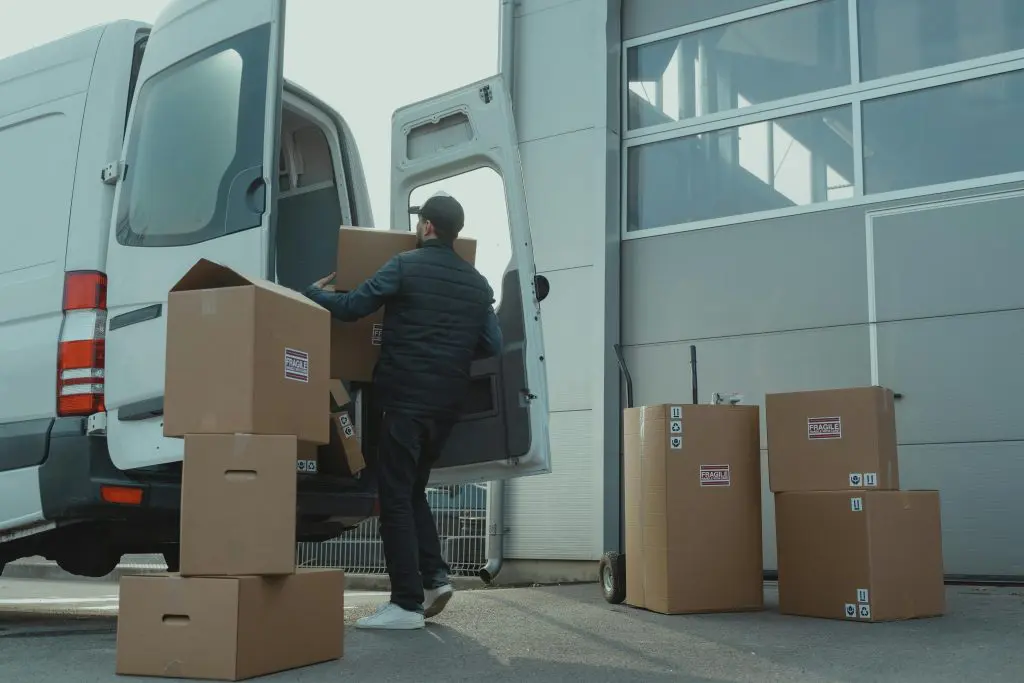
A Major Milestone in Sustainable Logistics Home improvement retailer B&Q has achieved a significant sustainability milestone by completing the transition of its retail logistics fleet from diesel to alternative low-carbon fuels. This move is part of B&Q’s wider ambition to reach net-zero carbon emissions in Scope 1 and 2 by 2040, and in Scope 3 […]
Home improvement retailer B&Q has achieved a significant sustainability milestone by completing the transition of its retail logistics fleet from diesel to alternative low-carbon fuels. This move is part of B&Q’s wider ambition to reach net-zero carbon emissions in Scope 1 and 2 by 2040, and in Scope 3 by 2050.
According to Amélie Gallichan-Todd, B&Q’s Supply, Logistics & Customer Service Director, the transition marks a “significant milestone” in decarbonising the company’s operations.
B&Q’s retail logistics fleet now runs entirely on alternative fuels, specifically a combination of hydrotreated vegetable oil (HVO) and liquefied natural gas (LNG). HVO is a renewable diesel alternative that can reduce lifecycle carbon emissions by up to 90% compared to conventional diesel.
“The adoption of HVO is a significant step in decarbonising our operations. This move delivers an immediate reduction in carbon emissions, saving approximately 7,262 tonnes of CO₂ annually,” said Gallichan-Todd.
The transition to HVO applies to all HGVs operating in B&Q’s store delivery network, complementing the existing use of LNG in other parts of its logistics operations.
Hydrotreated vegetable oil (HVO) is gaining traction as a transitional fuel in hard-to-electrify sectors like freight. Unlike biodiesel, HVO is a drop-in fuel compatible with existing diesel engines, making it a practical decarbonisation step while electric and hydrogen technologies mature. Its scalability and 90% CO₂ savings potential make it a viable solution in the short to medium term.
As companies set ambitious net-zero targets, accurate measurement of carbon reductions becomes critical. B&Q’s reported savings of 7,262 tonnes of CO₂ from switching to HVO highlight the need for robust lifecycle analysis of fuels and independent verification. Retailers embracing transparency will likely gain more trust from regulators, investors, and eco-conscious consumers.
The move was made possible through B&Q’s long-standing collaboration with GXO Logistics, which manages the retailer’s logistics operations. Together, the companies worked to phase out diesel-powered trucks and implement cleaner fuel alternatives without compromising delivery efficiency or service levels.
Scope 3 emissions, including those from third-party transportation and logistics, often represent the largest share of a company’s carbon footprint. By transitioning its own logistics fleet and working closely with partners like GXO, B&Q sets a precedent for retailers to take greater ownership of emissions in their wider value chain.
In addition to using alternative fuels for its larger trucks, B&Q has also begun integrating electric vehicles (EVs) into its home delivery fleet. In November 2023, the company introduced two electric delivery trucks, with plans to add smaller electric vans for local deliveries in early 2025.
The electric trucks are designed to make 12–14 deliveries per day, covering B&Q’s nationwide home delivery network, including large-item deliveries such as kitchens and bedrooms.
B&Q is also experimenting with autonomous delivery robots, in partnership with DPD UK, with trials currently underway in Milton Keynes.
B&Q’s parent company, Kingfisher plc, is accelerating its decarbonisation efforts across the group. For example, Screwfix, a Kingfisher-owned brand, recently introduced two electric HGVs in the Midlands as part of its own logistics transition.
These initiatives reflect the wider commitment of the Kingfisher group to reducing the environmental impact of its operations across Europe.
Immediate CO₂ Savings: The switch to HVO is expected to reduce carbon emissions by 7,262 tonnes per year.
Improved Air Quality: Lower emissions contribute to better air quality in communities served by B&Q’s logistics fleet.
Operational Efficiency: The transition has been implemented without disrupting delivery services.
B&Q plans to continue investing in sustainable logistics by exploring additional electric vehicle technology, expanding low-carbon fuel use, and further reducing emissions across Scope 3 activities.
“Our aim is to give customers more choice of speed and location whilst fulfilling our commitment to reduce our impact on the environment,” said Gallichan-Todd.
B&Q’s successful switch to 100% alternative fuels for its retail logistics fleet represents a major achievement in sustainable retail logistics. By adopting HVO and LNG, adding electric vehicles, and trialling autonomous delivery methods, B&Q is actively reducing its environmental impact and leading the way toward a net-zero future.
Key Takeaways:
B&Q’s retail logistics fleet now runs entirely on HVO and LNG.
The transition is expected to cut 7,262 tonnes of CO₂ annually.
Part of Kingfisher’s broader net-zero strategy for 2040/2050.
Supported by logistics partner GXO and new EV and automation initiatives.
At All-Ireland Sustainability, we’re committed to building a greener, fairer island, together. Stay informed on the latest environmental initiatives, community action, and policy developments shaping sustainability across Ireland, North and South.
👉 Sign up for our newsletter today and be the first to hear about upcoming events, expert insights, and ways to get involved.
Whether you’re a seasoned advocate or just starting your journey, new members are always welcome.
Subscribe now and be part of the All-Ireland Sustainability network.